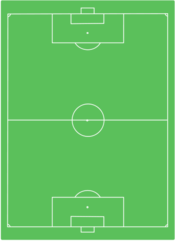2002-03 FA Premier League
| Season | 2002–03 |
|---|---|
| Champions |
Manchester United 8th Premier League title 15th English title |
| Relegated |
Sunderland West Ham United West Bromwich Albion |
| Champions League |
Manchester United Arsenal Newcastle United Chelsea |
| UEFA Cup |
Southampton Blackburn Rovers Liverpool Manchester City |
| Matches played | 380 |
| Goals scored | 1,000 (2.63 per match) |
| Top goalscorer | Ruud van Nistelrooy (25) |
| Biggest home win |
Chelsea 5–0 Manchester City (22 March 2003) Arsenal 6–1 Southampton (7 May 2003) |
| Biggest away win |
West Bromwich Albion 0–6 Liverpool (26 April 2003) |
| Highest scoring |
Manchester United 5–3 Newcastle United (23 November 2002) Newcastle United 2–6 Manchester United (12 April 2003) |
| Longest winning run | 7 games Liverpool |
| Longest unbeaten run | 18 games Manchester United |
| Longest winless run | 20 games Sunderland |
| Longest losing run | 15 games Sunderland |
| Highest attendance | 67,721 Manchester United 4–1 Charlton Athletic |
| Lowest attendance | 14,017 Fulham 0–4 Blackburn Rovers |
| Average attendance | 35,470 |
|
← 2001–02
2003–04 →
|
|
| PFA Team of the Year |
The 2002–03 FA Premier League (known as the FA Barclaycard Premiership for sponsorship reasons) was the 11th season of the Premier League, the top division in English football. The first matches were played on 17 August 2002 and the last were played on 11 May 2003.
Manchester United ended the campaign as champions for the eighth time in eleven years – an achievement made all the more remarkable by virtue of defending champions Arsenal having been in the lead by eight points on 2 March. Although this was a season of breaking new English domestic records for the Gunners, and leading at all fronts come the halfway stage, they threw away a priceless lead against Bolton Wanderers and finally surrendered the title with a 3–2 home defeat to Leeds United, in their antepenultimate game of the season. This result all but saved Leeds from relegation. Newcastle United and Chelsea were the remaining two teams, who qualified for the UEFA Champions League at the expense of Liverpool who had to settle for the UEFA Cup; they would be joined in Europe by Blackburn Rovers for their second successive season.
Updated to games played on 11 May 2003.
Source: FA Premier League
Rules for classification: 1) points; 2) goal difference; 3) number of goals scored
1Since Liverpool qualified for the UEFA Cup via the league, their place in the UEFA Cup as League Cup winners reverted to the league and was awarded to Blackburn Rovers.
2Since Arsenal qualified for the Champions League, their place in the UEFA Cup as FA Cup winners went to Southampton, who were the FA Cup runners-up.
3Manchester City qualified for the UEFA Cup as Fair Play winners.
(C) = Champion; (R) = Relegated; (P) = Promoted; (E) = Eliminated; (O) = Play-off winner; (A) = Advances to a further round.
Only applicable when the season is not finished:
(Q) = Qualified to the phase of tournament indicated; (TQ) = Qualified to tournament, but not yet to the particular phase indicated; (RQ) = Qualified to the relegation tournament indicated; (DQ) = Disqualified from tournament.
...
Wikipedia

